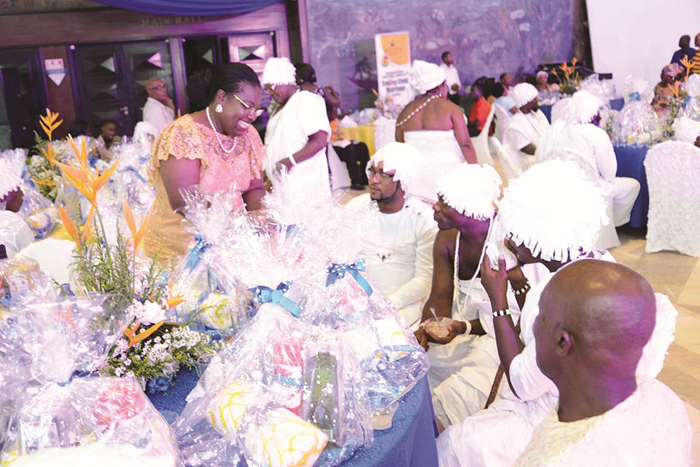
Gender Ministry holds forum on ending child marriage
The ministry of Gender, Children and Social Protection has held a forum with fetish priests and priestesses in the Greater Accra Region on ending child marriages, to help curb the menace of early marriage in society.
Advertisement
The programme was to solicit support from the traditional leaders who are referred to as “Wulomei”, on how they can help stop the act of giving out young girls to elderly men for marriage.
As leaders who wield a lot of power and respect in their various communities, the Wulomei are expected to come up with bye-laws and sanctions to ensure that parents do not give out their little girls in marriage under any circumstances.
Globally, 15 million girls marry before their 18th birthday, and this translates to 41,000 girls marrying each day, 28 marrying every minute and a girl getting married every two seconds, according to data released by the United Nations Children’s Fund (UNICEF).
Ghana’s national prevalence of child marriage has not declined between 2011 and 2014, remaining at 21 per cent, with 27 per cent of girls, meaning one out of every four girls, between the ages of 20 and 49 getting married before their 18th birthday, on the average.
Recent data on child marriage in Ghana reveals that the Upper East Region with 39.2 per cent, followed by Western Region with 36.7 per cent and Upper West Region with 36.3 per cent have the highest prevalence in the country.
Causes of child marriage
Poverty, tradition and religion, teenage pregnancy, low level of awareness, weak enforcement of existing laws and gender inequality have been identified as the causes of child marriage in the country.
This problem leads to the termination or delay of education, verbal and physical abuse from elderly spouses, health complications, poverty, burden of motherhood, divorce, early widowhood, limited social skills, among other social problems.
The Minister for Gender, Children and Social protection, Nana Oye Lithur, said the phenomenon was high along the coastal areas of the Greater Accra Region.
She said the laws in the country did not allow girls aged below 18 years to marry, and, therefore, called on parents to desist from such acts.
She said the government, together with UNICEF, was working at ending child marriages across the country through different interventions and programmes.
Nana Oye said when the girl child was given the needed education, she would be assertive in life and be able to make good health and sexual choices, and become more responsible when she matures before marriage.
Other commitments
A representative from UNICEF, Ms Joyce Odame, said UNICEF was committed to helping the country curb the problem of child marriage, pointing out that with support from identifiable bodies such as the ‘Wulomei’, the issue could be resolved.
In a statement of commitment from the ‘Wulomei’, the President of the Ga Dangbe Wulomei Association, Nuumo Nikoi Amasah II, Klan Wolomo, pledged the commitment of members of the association to help curb the menace in the region.



